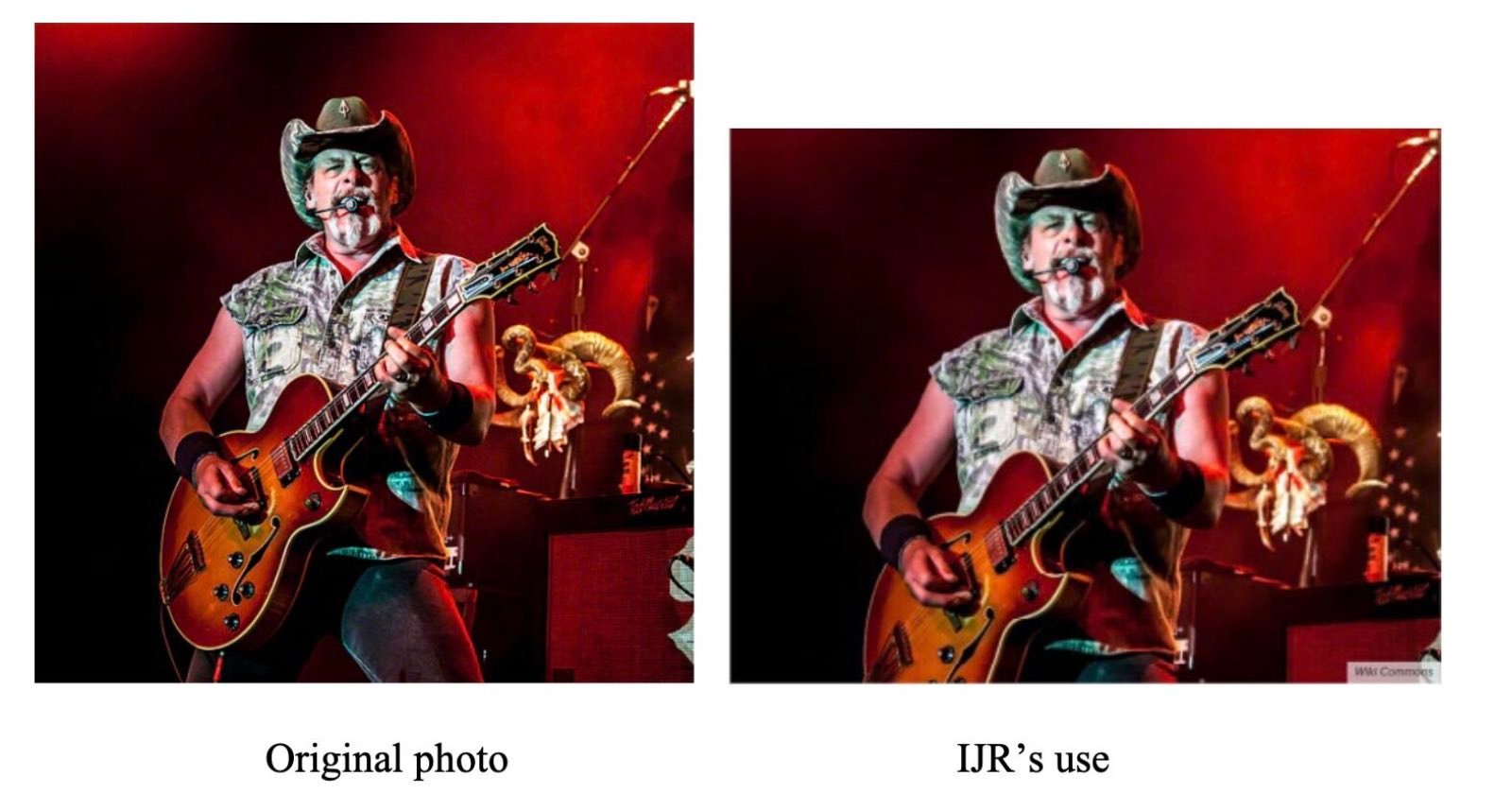Photographer Wins Copyright Lawsuit After Website Used His Creative Commons Image

A photographer has emerged victorious after suing a website for using his Creative Commons image without the proper credit.
In 2016, news website Independent Journal Review posted concert photographer Larry Philpot’s image of musician Ted Nugent in an article.
Philpot had registered the 2013 photograph of Nugent with the U.S. Copyright Office as part of unpublished works.
He had also published the photo on Wikimedia Commons under a “Creative Commons” license that specified anyone could use the photo for free as long as they provided attribution to the photographer.
Independent Journal Review published Philpot’s creative commons photo of Nugent in an article titled “15 Signs Your Daddy was a Conservative” under the fifth sign which was that “He hearts ‘The Nuge’.”
A Creative Commons Image Used Without The Proper Credit
However, Independent Journal Review’s article did not include Philpot’s required attribution for the Creative Commons image — meaning its use was outside the scope of the free-to-use license.
Instead, the news website hyperlinked to Nugent’s Wikipedia page, where the photo was featured.
Philpot filed his copyright infringement lawsuit against the Independent Journal Review four years later in May 2020.
In this initial lawsuit, a federal judge ruled in favor of Independent Journal Review and argued that the news website’s use of Philpot’s photograph was transformative fair use due to the new context created by the article.
How a Photographer Reversed a Fair Use Ruling
However, last month, the concert photographer convinced the U.S. Court of Appeals for the Fourth Circuit to reverse the ruling.
And on February 6, the U.S. Court of Appeals for the Fourth Circuit ruled that Independent Journal Review’s use of Philpot’s Creative Commons photograph of musician Ted Nugent did not constitute fair use.
The Fourth Circuit found that the federal judge’s previous ruling that Independent Journal Review’s usage was “transformative fair use” had been undercut by the the U.S. Supreme Court’s recent ruling on The Andy Warhol Foundation v. Lynn Goldsmith case.
The court cited how last year, America’s highest court found that “[a] typical use of a celebrity photograph is to accompany stories about the celebrity” and, where the purpose of the work is to illustrate the story about the celebrity, the use of the photograph is not transformative use.
“Because IJR’s use of the Photo did not add new purpose or meaning, and only minimal alteration, the use was not transformative,” the Fourth Circuit writes.
The Fourth Circuit also found that the nature of the copyrighted work was “creative,” due to Philpot’s “several creative choices” when taking the photograph of Nugent, weighing against fair use.
The court also found that widespread actions such as those of Independent Journal Review in this case could cause “cognizable market harm.”
In determining whether the use of the photograph was commercial or for nonprofit educational purposes, the Fourth Circuit also looked to whether Independent Journal Review “stood to profit.”
While Independent Journal Review does not charge readers to view its articles, it obtains revenue from advertising based on views of the photo. The news website earned only $2 or $3 in ad revenue for the article with Philpot’s photo of Nugent.
But, nonetheless, the Fourth Circuit found that Independent Journal Review’s profited from the image and therefore its use of the photographer’s image was commercial.
Andy Warhol Ruling Has Changed The Meaning of Fair Use
Philpot’s victory reveals how there could be an increasingly strict interpretation of fair use by the U.S. court in a post-Warhol ruling world.
Earlier this year, following the Supreme Court’s ruling on Warhol v Goldsmith, photographer Jeff Sedlik was finally granted a jury trial against celebrity tattoo artist Kat Von D went on trial — after he claimed that an image of a Miles Davis tattoo she inked on a client infringed his copyright.
However, Von D went on to score a resounding victory in the copyright infringement trial over the tattoo.
Image credits: Header photo via court documents.